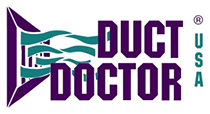The air we breathe plays a crucial role in maintaining our overall health and well-being. With individuals spending most of their time indoors, the quality of the air in our homes has never been more important. Polluted indoor air can lead to a range of health issues, including allergies, asthma, and respiratory problems. As experts in air duct cleaning, we understand the significance of excellent indoor air quality and want to guide you in selecting the right indoor air quality system for your home.
With various options available in the market, choosing the ideal indoor air quality (IAQ) system can be challenging. Factors such as the type of pollutants you are trying to remove, the size of your home, and the level of maintenance required can influence your decision.
To help you make an informed choice, this comprehensive guide on indoor air quality systems will cover different types of systems available, advantages and disadvantages of each, tips for selecting the right IAQ system based on your needs, and how to maintain your system for optimal performance.
Types of Indoor Air Quality Systems
To choose an indoor air quality system that meets your needs, it’s essential to understand the different types of systems available:
- Air Purifiers: These portable devices use various technologies, such as High Efficiency Particulate Air (HEPA) filters, activated carbon filters, and electrostatic precipitators, to remove airborne particles, allergens, and odors from the air.
- Whole-Home Filtration Systems: Installed as part of your home’s HVAC system, these filters clean the air throughout your entire home by capturing a wide array of particles, including dust, pollen, pet dander, and mold spores.
- Dehumidifiers: These appliances help control humidity levels in your home, preventing mold, mildew, and other moisture-related problems that can impact your health and home’s structural integrity.
- Ultraviolet (UV) Air Sanitizers: Installed within your HVAC system, UV lights neutralize bacteria, viruses, and other pathogens in the air, ensuring cleaner indoor air.
Advantages and Disadvantages of Different IAQ Systems
Each type of IAQ system has its pros and cons. Let’s briefly explore them:
1. Air Purifiers:
– Advantages: Portable and affordable, air purifiers can effectively tackle a variety of pollutants in specific rooms or small spaces.
– Disadvantages: Typically only effective in limited areas, frequent filter replacement may be required.
2. Whole-Home Filtration Systems:
– Advantages: Whole-home coverage, efficient filtration, low maintenance, and minimal noise.
– Disadvantages: Higher initial costs, requires professional installation, only filters particulates (not odors or gases).
3. Dehumidifiers:
– Advantages: Helps maintain ideal humidity levels, prevents mold and mildew growth, and reduces condensation on windows.
– Disadvantages: May not address all air quality issues, requires regular emptying of water collection buckets (unless connected to a drain).
4. UV Air Sanitizers:
– Advantages: Effectively neutralizes harmful pathogens, low maintenance, and energy-efficient.
– Disadvantages: Limited to pathogen removal (not particulates or odors), potential for ozone production in some units.
Selecting the Right IAQ System for Your Home
To choose the best IAQ system for your home, consider the following factors:
- Identify Your Primary Concerns: Determine the specific air quality issues you need to address, such as allergens, odors, humidity, or pathogens.
- Size and Coverage: Consider the size of your home and the desired coverage area. Portable air purifiers may be sufficient for smaller spaces, whereas whole-home filtration systems may be necessary for larger homes.
- Maintenance Requirements: Evaluate how much time and effort you’re willing to devote to maintaining your IAQ system. Some systems require more frequent maintenance and filter replacements than others.
- Budget: Factor in both the initial cost of the system and the ongoing expenses associated with maintenance and energy consumption.
Keeping Your Indoor Air Quality System in Optimal Condition
Proper maintenance is critical for ensuring the efficiency and longevity of your IAQ system. Follow these tips to keep your system running smoothly:
- Regularly Inspect Filters: Examine filters in your air purifier or whole-home filtration system every one to three months and replace them as needed to ensure optimal performance.
- Clean or Replace UV Bulbs: UV bulbs in air sanitizers should be cleaned periodically and replaced every one to two years, depending on usage.
- Empty Dehumidifier Buckets: Ensure regular emptying of water collection buckets in your dehumidifier or consider connecting it to a drain for continuous drainage.
- Schedule Annual HVAC Maintenance: Regular HVAC tune-ups by professionals can help maintain clean air ducts and prevent IAQ issues.
Final Thoughts
Selecting the right indoor air quality system for your home is vital for maintaining a healthy living environment. By considering the types of pollutants you need to address, the size of your home, and the desired level of maintenance, you can make an informed decision that aligns with your needs and budget. Proper care and maintenance of your chosen IAQ system will ensure its efficiency and longevity, ultimately enhancing your home’s air quality.
Don’t jeopardize your health and comfort by neglecting your home’s indoor air quality. Get in touch with us today to discuss your needs and explore the best indoor air quality solutions for your home!

